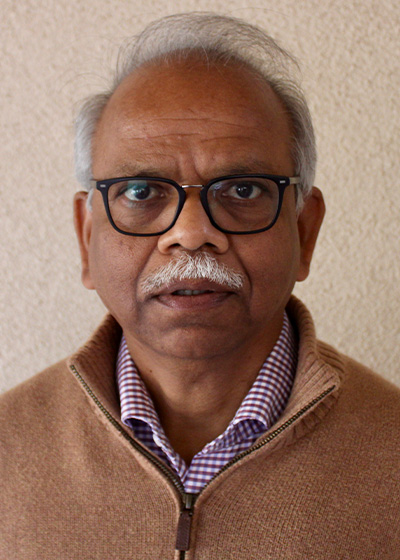Sushil K Mahata, Ph.D.
Dr. Sushil K. Mahata is a Research Physiologist at the VA San Diego Healthcare System, a Research Scientist at the Veterans Medical Research Foundation, a Professor of Medicine at the University of California San Diego (UCSD), and the President and the Founder of CgA Therapeuticals Inc. After receiving his Ph.D. in comparative endocrinology at the University of Calcutta (India) in 1988, he moved to Hans Winkler’s laboratory at the University of Innsbruck (Austria) in 1990 for his postdoctoral studies, where he was introduced to the chromogranin/secretogranin family of proteins. After completion of his postdoctoral studies, he joined Daniel T. O’Connor’s group at UCSD in 1993 to knockout and characterize the CgA protein. His basic research has been supported by grants from the National Institutes of Health (NIH) and the Department of Veterans Affairs (VA). His translational research has recently been funded by a NIH SBIR (small business and innovative research) proposal entitled “Test of catestatin (CST) and its mimetic as a new therapy for type 2 diabetes” (NIDDK 1R43DK138733-01).
He is an acknowledged expert on Chromogranin/Secretogranin proteins and their peptides and, in addition, has a broad background and knowledge of catecholamine/insulin synthesis, storage and release. He has published >230 original research articles and >40 review articles/book chapters, which are widely cited (>13,000 citations) by his peers. He conceived the idea of a catecholamine release inhibitory domain in Chromogranin A (CgA) in 1995, discovered the domain in 1996, and coined the term catestatin (CST: human CgA352-372) in 1997. He was the lead author on reporting the discovery of CST and is a major contributor (86 out of 266 publications) in CST physiology/pathophysiology. CST is now established as a pleotropic peptide: it reduces hypertension, provides cardioprotection and neuroprotection, improves insulin resistance, attenuates inflammation, enhances lipid disposal, and promotes angiogenesis.
Besides intense basic research, the Mahata Lab is also currently focused on the clinical development of CST (21-mer), natural human variants of CST (G364S and P370L), retro-inverso CST (RI-CST, reversing sequence, as well as inverting chirality to all D-amino acids), D-CST (all D-amino acids), CST-R (22-mer), and TKO-10-18 (a small molecule CST-mimetic pharmacophore) to address unmet needs in patients with diabetes, obesity, hypertension, gastroparesis, leaky-gut, and sarcopenia.

